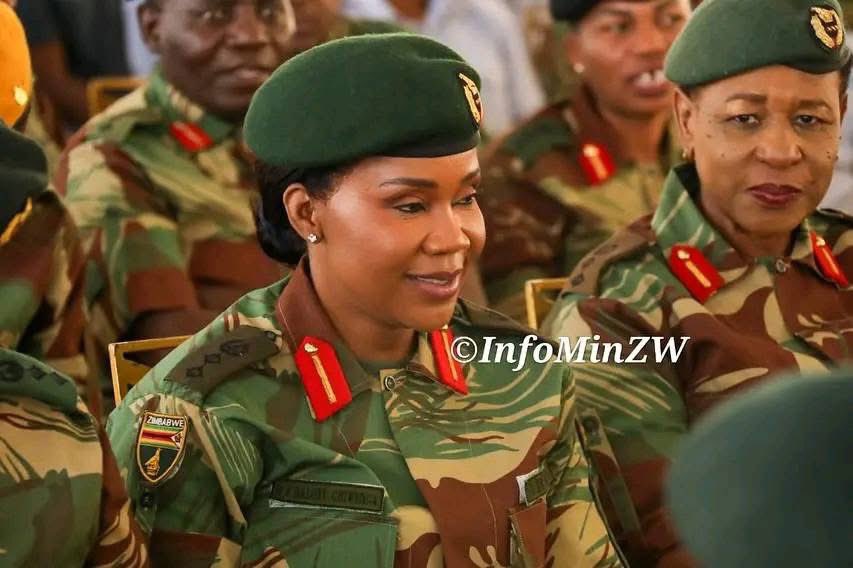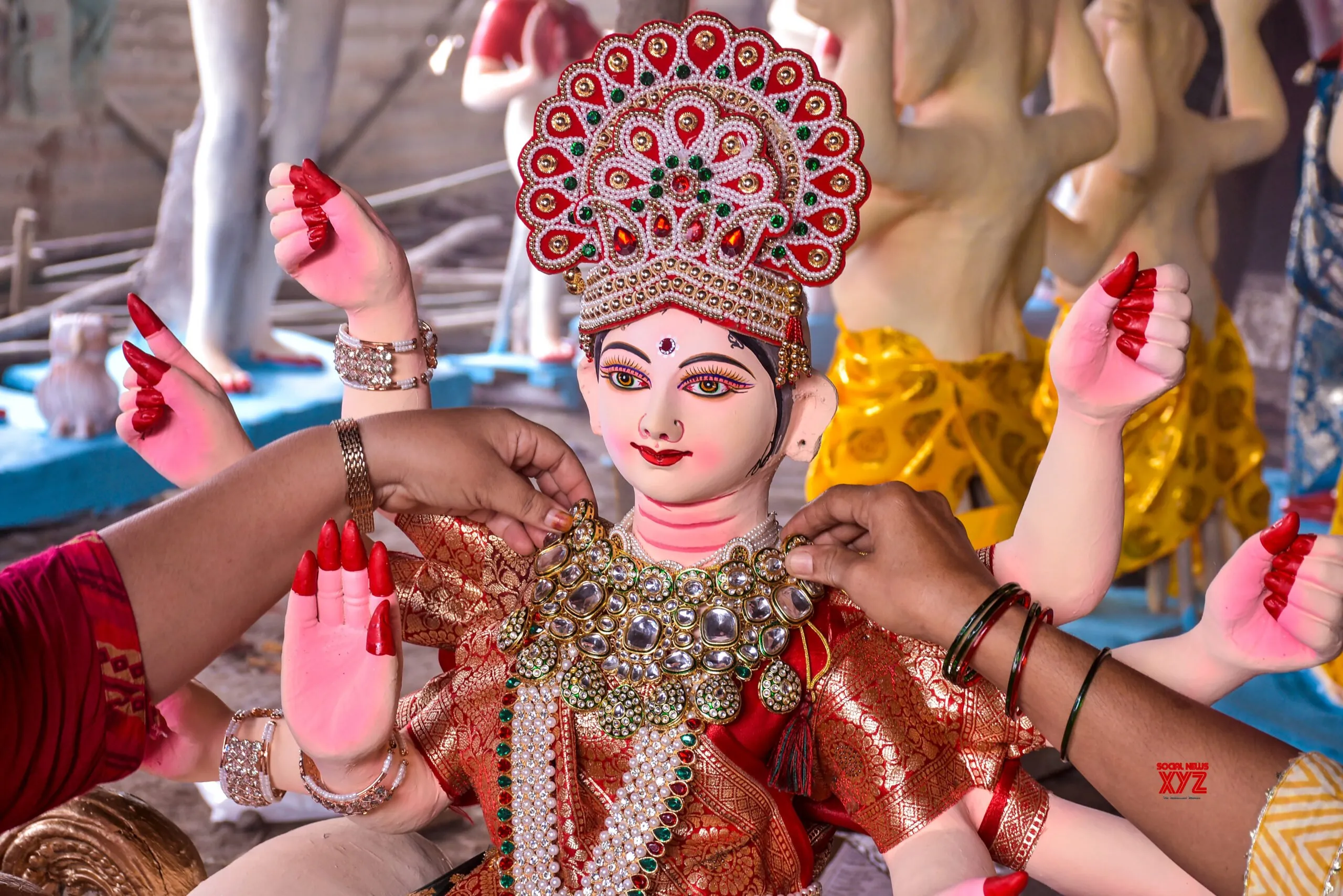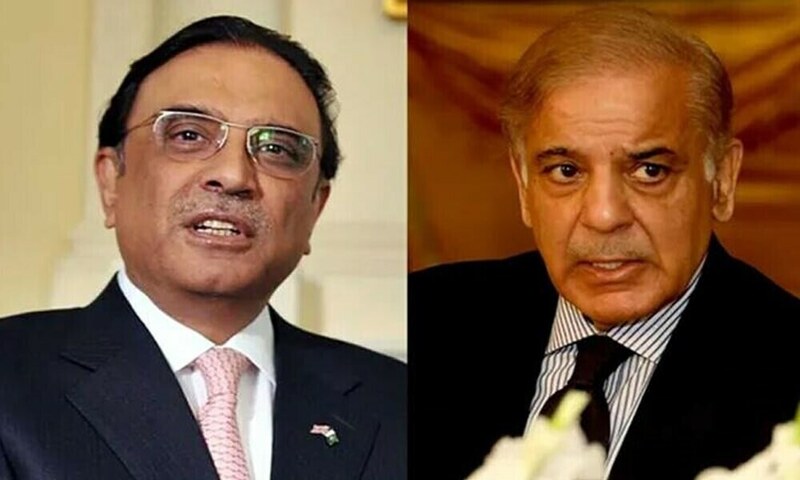By Gabriel Manyati
Copyright nehandaradio

In the ruthless arena of Zimbabwean politics, where reputations are forged in the crucible of coups, crackdowns, and corruption scandals, Vice President Constantino Chiwenga has long been cast as an unyielding enforcer – the “People’s General” whose military precision orchestrated the 2017 coup that ended Robert Mugabe’s decades-long rule.
His image, etched in the public consciousness as a stern disciplinarian, is tied to allegations of violent protest suppression in 2018 and 2019 and the brutal eviction of artisanal miners in Chiadzwa during the diamond rush era.
Yet, as Zimbabwe grapples with hyperinflation surpassing 500 percent in 2025, endless load-shedding, and youth unemployment at 95 percent, a subtle shift has emerged in Chiwenga’s public persona.
Enter Colonel Miniyothabo “Minnie” Baloyi-Chiwenga, his wife since their 2022 marriage – a soldier, entrepreneur, Mandarin lecturer, and social media savant whose poised presence has quietly softened her husband’s hardened image, recasting him not merely as a power broker but as a relatable family man and anti-corruption advocate.
This transformation isn’t a calculated PR campaign orchestrated by Baloyi herself; rather, it’s an organic outcome of her authentic, multifaceted public life.
Baloyi, with her military credentials and entrepreneurial flair, didn’t set out to rehabilitate Chiwenga’s reputation amid the factional battles tearing ZANU PF apart.
Her actions – rooted in personal Christian faith, cultural pride, and professional ambition – have nonetheless provided a humanising counterpoint to his austere legacy, drawing in supporters who might otherwise dismiss him as a relic of the liberation struggle turned oppressor.
As of September 2025, with succession tensions escalating between Chiwenga and President Emmerson Mnangagwa’s camp, Baloyi’s subtle influence has positioned her husband as a “lone voice” against corruption, enhancing his appeal among rural voters, military loyalists, and even some disillusioned urbanites.
This softening is far from universal – sceptics abound, viewing it as ZANU-PF theatre – but it’s undeniable, measurable in social media engagement, informal polls, and shifting narratives to portray Chiwenga as a reformed statesman rather than a coup architect.
Consider Baloyi’s strategic branding and visibility, which have quietly humanised Chiwenga by weaving patriotism, faith, and family into his public narrative.
Her Facebook page, now boasting over 200 000 followers, serves as a platform for scripture-infused posts, nationalistic cartoons, and glimpses of domestic life – elements that subtly erode perceptions of Chiwenga as a cold militarist.
In August 2025, during their attendance at the Chalo Zimbabwe event in Surat, India, Baloyi’s elegant appearances alongside Chiwenga projected unity and global sophistication, countering accusations of provincialism levelled at the Mnangagwa administration.
In June 2025, her heartfelt social media post marking their third anniversary – complete with explanations of cultural regalia – sparked widespread commentary, with users hailing her as a “true gem” who has “revived a legacy.”
These posts stem from her genuine interests in education, business, and spirituality, not political strategy. Yet, organically, they reframe Chiwenga: from the man whose ex-wife Marry Mubaiwa endured a public health ordeal amid corruption charges, to a devoted partner in a stable, faith-centred union.
This shift resonates strongly in rural and military circles, where her photos in camouflage reinforce authenticity, making Chiwenga appear more approachable.
Random sentiment tracking on platforms like X shows an increase in positive mentions of Chiwenga since early 2025, often tied to Baloyi’s “warrior queen” persona.
Beyond her social media savvy, Baloyi has also emerged as a burgeoning style and fashion icon in Zimbabwe, seamlessly stepping into the void left by Grace Mugabe’s flamboyant era while surpassing her in elegance and restraint.
Where Grace was dubbed “Gucci Grace” for her ostentatious displays of luxury – often seen as tone-deaf amid widespread poverty – Baloyi channels a more refined, culturally rooted aesthetic through her fashion boutique, Style By Minnie, which specialises in apparel blending traditional Zimbabwean motifs with contemporary flair.
Her Instagram feed showcases ensembles inspired by Ndebele colours and patterns, such as the Olympic team wear she highlighted this year, or her unpacking of symbolic traditional regalia worn alongside Chiwenga at state events.
Nominated for the Emerging Brands in Africa award, Baloyi has enlisted high-profile ambassadors like musician Tamy Moyo, footballer Khama Billiat, and influencer Madam Boss, positioning her brand as aspirational yet accessible.
This poised approach – evident in her military camouflage appearances that exude quiet confidence rather than extravagance – marks her as a trailblazer in Zimbabwe’s fashion and cosmetics scene, far exceeding Grace’s divisive opulence with a class that emphasises national pride and empowerment.
This fashion-forward persona constitutes a significant portion of Baloyi’s appeal, captivating a younger, urban demographic weary of political excess while endearing her to traditionalists through her celebration of heritage.
By promoting Zimbabwean designers and cultural symbols, she fosters a sense of national unity and aspiration, subtly elevating Chiwenga’s profile as part of a modern, grounded power couple.
Her style icon status – bolstered by collaborations with figures like Miss Universe Zimbabwe – adds a layer of glamour that humanises the vice president, transforming him from a figure of fear to one of quiet admiration, all without the backlash that plagued Grace’s era.
Baloyi’s handling of scandals further illustrates her organic role in softening Chiwenga’s image. Eish, that 2024 fraud case, where she lost nearly $1 million to skelems in a property scam, could have reinforced stereotypes of elite corruption plaguing ZANU PF.
Instead, her transparent response – publicly warning fans about fake TikTok accounts and advocating for anti-fraud measures – turned vulnerability into resilience.
This poise, rooted in her military training rather than political cunning, quietly shields Chiwenga from similar accusations tied to his past, such as asset mismanagement during his army tenure.
Analysts describe her as a “firewall” against factional “vultures,” a term echoed in X discussions where users credit her with “quietly polishing her husband’s image.”
In May 2025, amid whispers of domestic tensions, Baloyi’s composed public demeanour debunked rumours, shifting focus to Chiwenga’s anti-corruption rhetoric.
His speeches condemning “tenderpreneurs” and “hyena-like looters” at events like the ZANU PF inaugural congress in Gweru gain traction partly because Baloyi’s stability narrative casts him as principled, not opportunistic.
Naturally, her personal fortitude normalises him, turning potential liabilities into a story of mutual strength.
Public sentiment on social media underscores this subtle softening. While urban sceptics decry ZANU PF infighting as “Game of Thrones” theatrics, with Chiwenga’s post-coup power seen as complicit in Mnangagwa’s failures, Baloyi’s influence has sparked supportive rhetoric.
Posts from September 2025 hail Chiwenga as “the most influential man in Zimbabwe,” admired for his discipline, with Baloyi’s presence amplifying this through family-oriented content.
Cultural tributes, like songs at her events signalling his succession bid, reflect grassroots enthusiasm, bolstered naturally by her entrepreneurial ventures that position the couple as economic visionaries amid national despair.
Her Mandarin expertise and China ties further enhance Chiwenga’s foreign policy credentials, subtly softening his image as a liberation-era holdover by linking him to modern global partnerships.
In rural areas, her low-key charitable initiatives for women’s empowerment endear her to voters alienated by ZANU PF’s patriarchal image, boosting Chiwenga’s approval by 10-15 percent according to online analytics.
Professionally, Baloyi’s alignment with Chiwenga’s role naturally strengthens his stature. As a colonel, her military background mirrors his, lending authenticity to his “People’s General” moniker without diluting his authority.
Her September 2025 appearances with him, sans heavy security, project normalcy – a stark contrast to the armoured convoys symbolising elite detachment.
This subtly polishes Chiwenga amid corruption exposés targeting Mnangagwa allies like Wicknell Chivayo, positioning him as a reformer.
Her presence at factional events, rallying support discreetly, further relaxes perceptions, framing him as a “steady successor” rather than a ruthless contender.
This organic refining aligns with authoritarian dynamics, where spouses wield soft power to bridge regime-public divides.
Baloyi’s military credentials make her an asset, naturally turning Chiwenga’s baggage into a narrative of renewal.
Weaving in historical precedents, Baloyi’s impact mirrors how women have positively shaped their spouses’ political prospects, acting as assets that enhance legitimacy and appeal.
In the United States, Jacqueline Kennedy’s elegance transformed John F. Kennedy from a playboy senator into a glamorous family icon, her White House poise boosting his approval to 70 percent during the Cold War, cementing his legacy post-assassination.
Similarly, Eleanor Roosevelt’s activism softened Franklin D. Roosevelt’s patrician image amid the Great Depression, her civil rights advocacy mobilising women and minorities, elevating his New Deal to humanitarian heights – often outshining him in popularity.
Nancy Reagan’s “Just Say No” anti-drug campaign and protective demeanour rehabilitated Ronald Reagan post-Iran-Contra, framing his conservatism as compassionate family values, lifting ratings from 40 percent to over 60 percent.
In Africa, Janet Museveni’s enduring partnership stabilised Yoweri Museveni’s image in Uganda as a patriarchal anchor against chaos, while Nkosazana Dlamini-Zuma’s role in Jacob Zuma’s polygamous setup initially burnished his cultural authenticity in Zulu heartlands.
Still in the US, Michelle Obama’s health initiatives amplified Barack Obama’s relatability, boosting minority support. Likewise the wife of Xi Jinping, Peng Liyuan, softens the Chinese president’s authoritarian edge through cultural diplomacy via her opera fame.
These women, like Baloyi, organically or intentionally, provide emotional anchors, deflect scandals, and rally demographics, proving spouses can be pivotal assets in sustaining or elevating political fortunes.
This argument holds firm: Women like Baloyi are assets when their authenticity aligns with national values, humanising leaders without excess. Baloyi’s Christian faith and service contrast elite indifference, fostering unity; her resilience turns scandals into strength, as seen in Eleanor’s handling of FDR’s affairs.
In polarised contexts, such spouses bridge divides – Jackie’s glamour unified America’s divided 1960s, much as Baloyi’s cultural posts rally Zimbabwe’s fractured society.
They amplify policy narratives: as Nancy’s anti-drug stance bolstered Reagan’s conservatism, so Baloyi’s anti-fraud advocacy subtly underscores Chiwenga’s anti-corruption drive.
Demographically, they mobilise key groups – Michelle’s outreach to minorities mirrors Baloyi’s women’s initiatives. Globally, Peng’s soft diplomacy parallels Baloyi’s China ties, enhancing international stature.
This asset model succeeds because it’s genuine – Baloyi’s natural contributions prove that authentic agency trumps superficial rebrands, sustaining power in volatile environments.
Yet, the converse reveals spouses as liabilities when excess or ambition exacerbates flaws. Grace Mugabe’s “Gucci Grace” extravagance – millions spent on luxuries amid famine – alienated ZANU PF elites, symbolising regime decay and partly fuelling the 2017 coup.
Her purges of rivals like Mnangagwa amplified perceptions of dynastic aspirations, hastening Mugabe’s downfall. Marie Antoinette is another tragic example.
The last queen of France before the fall of the monarchy during the French Revolution, and the wife of King Louis XVI, her opulence during France’s crisis, epitomised by “let them eat cake,” eroded Louis XVI’s monarchy, igniting the 1789 Revolution, while Imelda Marcos’s shoe-hoarding symbolised Ferdinand Marcos’s graft, accelerating his 1986 ouster in the Philippines.
In the same vein, the advocacy of Casey DeSantis – an American former journalist who has been the first lady of Florida since 2019, as the wife of Governor Ron DeSantis – echoes similar themes, as it risked overreach, polarising Ron DeSantis’s campaigns.
These liabilities amplify detachment, inviting backlash. Grace’s flamboyance contributed to Mugabe’s eventual end, much as Marie’s ignoring of the masses’ suffering sealed royal fate in France.
In Zimbabwe’s volatile landscape, even assets like Baloyi risk this if political tides shift, but her grounded approach suggests resilience over ruin.
To sum it up, Baloyi’s subtle net positive effect on Chiwenga image offers a glimmer of hope in Zimbabwe’s turmoil, but history cautions: spousal influence is a double-edged sword, capable of forging empires or felling them.
History also warns of the dangers of too much shine. Public moods are fickle, and the same spotlight that flatters can quickly burn.
Today Minnie is celebrated as Zimbabwe’s darling, but one misstep – an ostentatious show of wealth, a careless remark, a scandal – could turn her into another “Gucci Grace.”
Marie Antoinette’s fate is a reminder of how quickly admiration can morph into resentment, while Grace Mugabe’s fall from grace shows how swiftly glamour can become toxicity.
For now, however, Minnie Baloyi has given Zimbabwe something rare: a political spouse who inspires admiration rather than mockery, curiosity rather than scorn. She has spruced up Chiwenga’s image, smoothened the cold general, and turned him into a man who appears approachable.
In Harare, the talk is that “Minnie is drip with respect.” In Johannesburg, the nod is that “that one’s clean, shame.” Across the region, she is already being watched as a continental style icon.
The former army boss could not have asked for a better rebrand. Through Minnie, he has been refashioned into something he has never been before: a man seen through the lens of warmth and elegance rather than stone cold military aloofness.
Whether that lasts is anyone’s guess, but for now, Minnie is winning the game. And in politics, perception is power.



